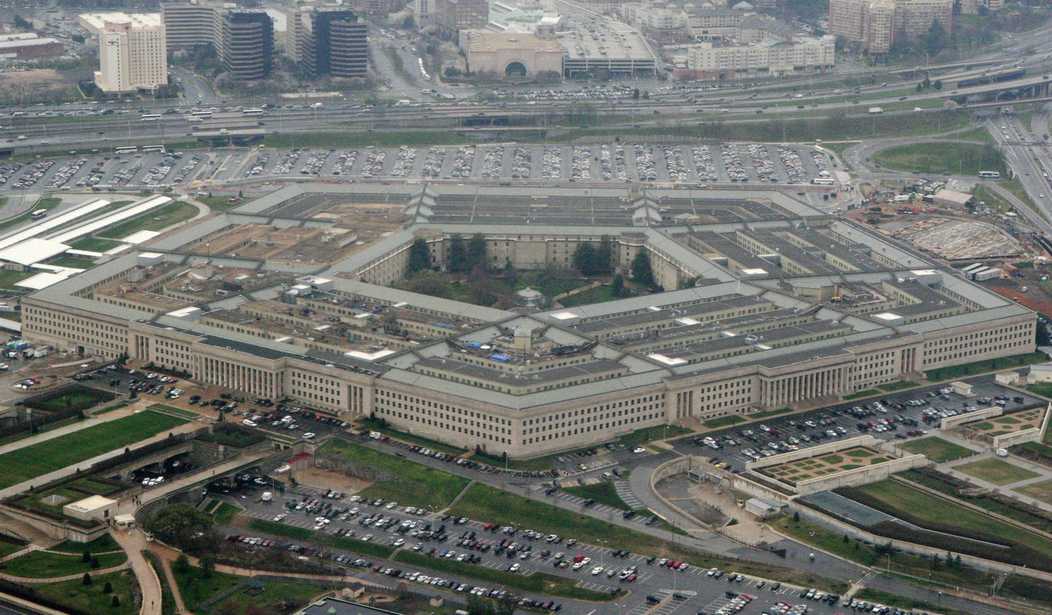The federal government has no greater job than ensuring the safety of over 300 million Americans. That said, the National Defense Authorization Act (NDAA) is the most important that Congress must pass every year. It authorizes expenditures for the Department of Defense and its timely passage is critical to our national defense and military readiness.
This year’s bill is widely expected to include a 5.2 percent pay raise for our men and women in uniform—the largest such increase since 2002—which everyone can agree is a good thing.
This year’s NDAA also devotes significant resources to deterring Chinese aggression – a priority of both parties, especially when considering the unrelenting cyber-attacks being perpetrated with support from the Chinese Communist Party.
Although it’s the norm from year-to-year for Republicans and Democrats to disagree on what exact defense-related provisions should be included in the NDAA, it seems that a couple of key legislators may unfortunately endanger the timely passage of this crucial bill by using it as a vehicle to do the bidding of big business and lobbyists.
For more than a year, Sen. Roger Marshall (R-KS) and his partner, Democratic Majority Whip Dick Durbin (D-IL), have been trying, with no success, to pass their misleadingly coined “Credit Card Competition Act.”
The reason for their failure thus far is simple – the so-called Credit Card Competition Act would be incredibly unpopular with most consumers should it pass into law, and now these two are attempting to wedge this unrelated legislation inside of the bigger NDAA.
Recommended
Today, when you purchase groceries or gas with your credit card, the merchant pays a small percentage of the purchase price to your credit card issuer. In order to encourage more consumers to use their credit cards, issuers will offer rewards programs that give cash back or points that can be used for benefits such as free airline trips and hotel stays.
Polling shows that credit card rewards programs are popular with consumers; in fact, 71 percent of Americans have a rewards credit card. But Marshall and Durbin’s bill would force a bank that issues either a Visa or Mastercard to use at least two credit card networks on their credit card transactions instead of just one, with one of those networks having to be a network other than the Visa/Mastercard.
Another example of the government attempting to tell the private sector how to conduct its business. And you may also ask, “What does this bill have to do with America’s defense needs?” You guessed it — nothing. Yet, these two Senators are working hard to get it attached to the NDAA.
According to reports, “Marshall was threatening to throw up hurdles” to passing the NDAA in order to attach his completely unrelated credit card legislation. After receiving some pressure for the threat, Marshall’s office was forced to issue a statement that the senator wasn’t actually trying to hijack the process. Unfortunately, actions speak louder than words.
Marshall and Durbin claim their bill would reduce costs for retailers, which in turn would result in lower prices for consumers. It would not. It would destroy the viability of rewards credit cards, leading them to become far less generous or phased out entirely. The only beneficiaries of their bill would be large retailers that will not pass their savings along to consumers.
This is not just speculation; we need only look back 13 years and see what happened when Durbin passed similar legislation to cap processing fees charged by banks for debit card purchases. Durbin’s caps resulted in the virtual extinction of rewards debit cards and, according to the Federal Reserve, the loss of revenue led banks to charge higher fees and eliminate popular benefits like free checking.
Research from the International Center for Law & Economics and George Mason University School of Law also found that the promised savings to consumers never materialized and that large retailers simply pocketed the money.
The Credit Card Competition Act is bad policy that would take money out of consumers’ pockets to pad the bottom lines of big-box retailers like Walmart and Target. But regardless of the merits of the bill, credit card processing fees have absolutely nothing to do with our national defense and they should not be addressed in the NDAA. Sens. Marshall and Durbin are free to make their case for why their bill should pass. But they need to stop using our brave American soldiers for cover.
Julio Rivera is a business and political strategist, cybersecurity researcher, Editorial Director for Reactionary Times, and a political commentator and columnist. His writing, which is focused on cybersecurity and politics, has been published by many of the most respected news organizations in the world.

























Join the conversation as a VIP Member